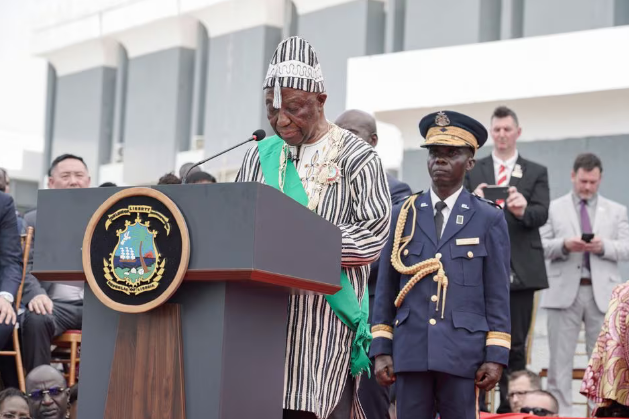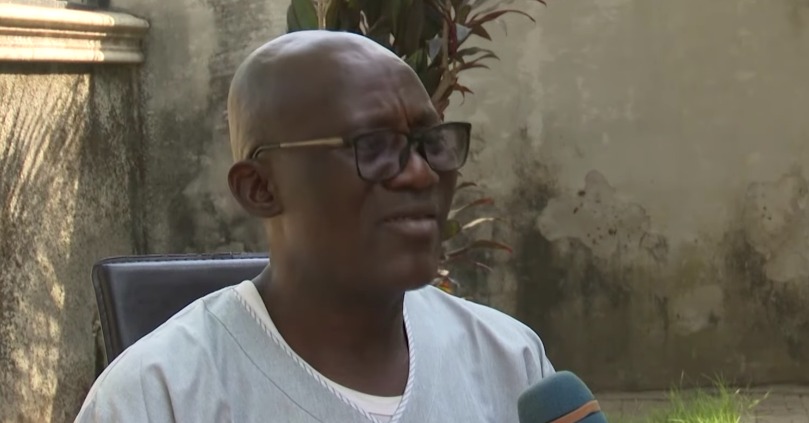On August 16, 2023, the Nigerian National Petroleum Company (NNPC) Limited secured a $3.3 billion emergency crude repayment loan — a transaction aimed at supporting the naira and stabilising the foreign exchange (FX) market.
Arranged by the African Export-Import Bank (Afreximbank), the $3.3 billion crude-for-cash loan was also targeted at supporting the federal government’s monetary and fiscal reforms.
Although the specifics of the transaction were not initially made public, information about the terms of the agreement only became available recently.
According to the details of the transaction, Nigeria will pay an interest of 11.85 percent per annum on the “pre-export finance facility” (PxF).
Advertisement
Project Gazelle Funding Ltd (PGFL), a special purpose vehicle (SPV), incorporated in Bahamas for the PxF, is the borrower while the NNPC is the “sponsor” and will pay with oil to the SPV to liquidate the loan.
NNPC is required to prepay future royalties and taxes to the federal government.
Nigeria pledged a total of 164.25 million barrels of crude oil — at 90,000 barrels per day (bpd) — starting from 2024 to repay the loan through Project Gazelle.
Advertisement
Afreximbank had said it successfully arranged an initial disbursement of $2.25 billion under the crude oil prepayment facility.
Since some details of the transaction became public, stakeholders have grown a keen interest in the oil pre-payment loan.
Clarifying the agreement terms, the NNPC, in a document signed by Olufemi Soneye, its chief corporate communications officer, on Sunday, spoke on the details of the facility in a document titled, ‘Frequently Asked Questions (FAQs) – Project Gazelle’.
WHAT IS PROJECT GAZELLE?
Advertisement
According to the document, the loan agreement, also known as Project Gazelle, is a forward-sale structured finance facility backed by crude oil — with NNPC serving as both the sponsor and the seller.
According to the national oil company, the facility involves the forward sale of a predetermined quantity of future barrels of crude oil, while securing upfront payment from a special purpose vehicle (SPV) backed by international financial institutions.
NNPC said it will have access to the proceeds from the forward sale.
HOW DOES CRUDE OIL FORWARD SALES WORK?
Advertisement
According to the terms of the forward sale financing agreements for crude oil, an SPV enters into a forward sale agreement with the seller (NNPC).
Subsequently, the SPV obtains financing from a bank or financial institution based on the agreed forward sale value of crude oil from NNPC.
Advertisement
The financing is often collateralised by the future crude oil itself, the firm said.
The to the FAQ document, NNPC (the seller) can then use the proceeds from the forward sale to finance its operations, including operational expenses, production costs, investments in new projects, and prepayment of taxes and royalties.
Advertisement
On the other hand, the SPV can use the proceeds from the sale of the crude oil to meet its financing obligations with the banks/financing institutions and return any excess from the final sales back to the original seller (NNPC).
WHY IS IT CALLED PROJECT GAZELLE AND WHY IS NNPC LIMITED DOING IT?
Advertisement
Project Gazelle is a structured crude oil-backed forward-sale finance facility sponsored by the NNPC.
“It is called project gazelle because that is the code name given to it,” the document reads.
The document stated that under the project, NNPC Limited agrees to sell a predetermined quantity of future barrels of crude oil production in advance while securing upfront payment from a special purpose vehicle (SPV) backed by international financial institutions.
The project provides immediate US dollars financing for NNPC’s operational needs, including paying its tax and royalty obligations to the federal government upfront.
HOW DOES THIS IMPROVE NIGERIA’S FOREIGN EXCHANGE INFLOW?
In the document, the NNPC explained that by using the upfront funding, Nigeria is expected to maintain the stability of its currency — the naira — and increase its FX reserves.
Although increasing oil production and exports can also lead to these benefits, forward-sale contracts—like the one employed in NNPC’s project gazelle — offer a more immediate option given the current investment constraints.
Forward-sale contracts enable resource-producing companies like NNPC Limited to obtain substantial upfront investments for new projects ahead of production and export.
“The funding can then be used for investments in existing and future resources, leading to increased oil and gas production and higher exports, resulting in more dollars and foreign currencies entering the country,” NNPC said.
WHAT HAPPENS IF SALES PROCEEDS EXCEED REPAYMENT AMOUNTS?
According to the document, NNPC will repay the original loan amount and the agreed-upon interest rate, if the sales proceeds surpass the repayment amount.
In addition, any excess revenue from the crude sold at a higher amount will be paid back to NNPC.
HOW DOES THE PROJECT AFFECT CREDIT RATING?
The NNPC also said the facility might affect credit rating positively by expanding funding sources and increasing foreign reserves.
The national oil company said the facility’s small size will not have a major effect on future oil earnings compared with Nigeria’s oil production.
Add a comment






